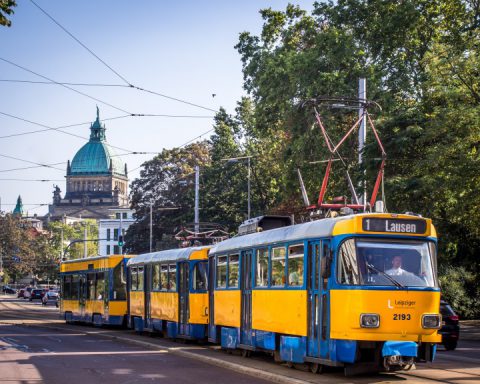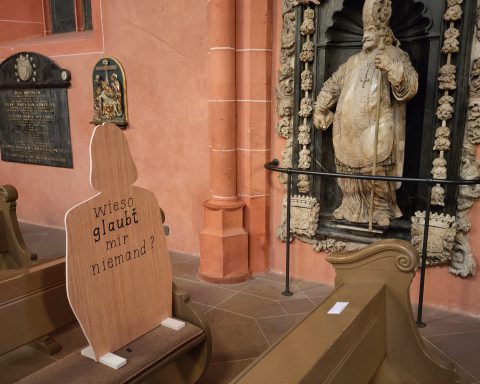What will the EU and UK look like post-Brexit?

The latest arrangements for Britain’s exit from the European Union (Brexit) offer reassurance for Brits living in Europe. More than one million UK citizens and their families live in the EU, so this is a big deal.
Prime Minister Theresa May (Conservative) has posted a message on social media, telling them that they can keep all their British rights whilst remaining in their new European homes.
“You will be able to receive healthcare rights, pension and other benefits provisions as you do today. You can also benefit from existing rules for past and future social security contributions,“ says May.
As far as children and other family members are concerned, they will be allowed to join British expats and live with them in the EU, even after the divorce is finalised.
This only covers relationships that already existed before Brexit Day, 29 March 2019. The aim of that rule is to prevent so-called “fake” marriages and civil partnerships. It’s feared that many more British citizens might choose to live in Europe at that point, and try to use a love affair in order to gain residency rights.
Brits already living in EU27 countries can leave and then come back again to their home member state without losing any rights, as long as they do not stay away for more than five years.
Those residency rights have been promised in principle by Mrs May, but the details are still hazy. The official government guidance explains that UK citizens may have to obtain a residency permit from the member state where they live.
The text promises that “administrative procedures for applications for status will be transparent, smooth and streamlined. Where an application is required to obtain status, UK nationals will have at least two years to submit their applications. Residence documents will be issued free of charge or for a charge not exceeding that imposed on nationals for the issuing of similar documents.”
Yet these are post-Brexit promises that the UK government actually cannot make.
It is up to the individual member state concerned to decide on how many British residents it will accept and on what terms.
There are also unresolved sticking points in the negotiations. The free movement of people is one of the cornerstones of European Union membership. So it is still not clear whether Brits will be able to move to another EU country – for example, leaving Germany to take up a new job in Spain – without getting visas and work permits after 2019.
Theresa May promises: “I will continue to push for the best possible deal for our nationals across the EU.”

Meanwhile, her government has put in place a new British passport, with a blue cover instead of the dark red EU branding. It’s dark or “navy” blue, not the bright colour of the EU’s star-spangled banner in blue and gold. A contract for £490 million is out to tender for making the switch back to this old style of passport.
It’s the one that existed before the UK joined the European Community, with the Queen’s coat of arms on the cover and “patriotic scenes” on the inside pages, according to the Daily Express. EU passports will be phased out gradually, and the price of £72.50 for renewal will remain the same.
So far, the proposal offered by the EU Brexit negotiator Guy Verhofstadt of an individual associate citizenship has not been taken up by officials. But some 2,850 British people have signed a petition in support of this scheme.

In Estonia, e-citizenship is on offer, so that may provide an alternative for business owners post-Brexit. The tiny Baltic nation promises “the freedom to easily start and run a global business in a trusted EU environment.”
On the island of Malta, there is a thriving trade in EU passports.
The government targets wealthy business owners and offers attractive tax breaks. According to the BBC, this may not be as worthwhile as it seems, and may be connected to the assassination of investigative journalist Daphne Caruana Galizia.
Other EU governments seem determined to undermine the European project. Poland’s new Prime Minister Mateusz Morawiecki has issued a call for Poles living abroad to “come home”.
And despite the assurances of Britain’s Mrs. May that EU nationals will be fairly treated after Brexit, net migration to the UK dropped by 84,000 to 248,000 in 2016, the lowest level for nearly three years, according to the Office of National Statistics.

Uncertainty about exactly what Brexit will mean is unsettling for all concerned, and the negotiations will continue for months. Now there is a call for a new referendum on EU membership from – of all people – Nigel Farage, the leading Brexiteer and former UK Independence Party leader. The best way to keep up with official changes is to sign up for alerts from civil servants in Whitehall. Oh, and watch this space for updates.
By Jane Whyatt
Disclosure: Jane Whyatt is a UK citizen living in Leipzig, writing in a personal capacity. She voted REMAIN at the EU referendum.








